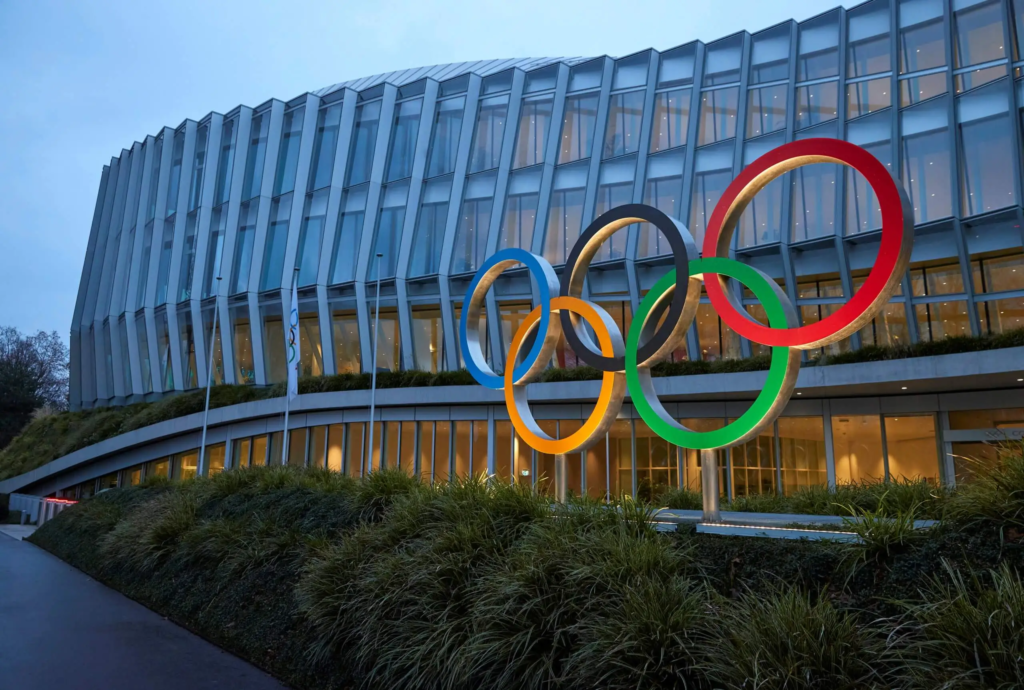Cheerleading’s potential inclusion in the Olympics could revolutionize college cheerleading, bringing increased resources, recognition, and opportunities for athletes.
Nearly 800 college cheer teams compete nationally each year, with over 470 teams at the National Cheerleading Association (NCA) College Nationals in Daytona Beach, Florida, and 300 teams at the Universal Cheerleaders Association (UCA) College Nationals at Walt Disney World Resort in Orlando, Florida. These prestigious events highlight the best of college cheerleading and the historic rivalry between NCA and UCA. NCA College Nationals, often simply referred to as “Daytona,” has been the pinnacle of competitive college cheerleading since it was first held in Dallas, Texas, in 1981, before moving to Daytona Beach in 1996. Both competitions play a critical role in showcasing top talent from across the nation.
However, the growing possibility of cheerleading becoming an Olympic sport could shift the focus from Daytona and Orlando to a global stage. As athletes compete at the bandshell, cheerleading leaders are contemplating how Olympic recognition could elevate the sport, offering new career paths for cheerleaders after college. Per the NCAA, seventy-five percent of all Olympians come from college sports.
Traditionally, cheerleading has operated outside National Collegiate Athletics Association (NCAA) regulations due to a 1975 decision by the Department of Education’s Office of Civil Rights, which deemed cheerleading an extracurricular activity. This classification was reaffirmed in 2010, meaning cheerleading isn’t counted under Title IX, which mandates equal opportunities for women’s sports. As a result, college cheerleaders typically compete at the UCA or NCA College Nationals, both organized by Varsity Spirit.
But the landscape may be on the brink of change. The International Olympic Committee (IOC) recognized cheerleading as a sport in July 2021, a crucial first step towards Olympic inclusion. This recognition was the result of over two decades of efforts by Jeff Webb and the International Cheer Union (ICU), established in 2004 to demonstrate the sport’s global appeal. Starting with 20 countries, the ICU now includes 117 member National Cheer Federations, representing over 10 million athletes worldwide.
Following IOC recognition, Webb aimed to have cheerleading featured in the 2028 Los Angeles Olympics. While the dream of seeing cheerleaders at the LA 2028 Olympics didn’t materialize, the recent announcement that Brisbane will host the 2032 Olympic Games has reignited hope and optimism within the cheerleading community. The IOC’s decision to include five additional sports on the LA28 roster – baseball/softball, cricket, flag football, lacrosse, and squash – may have been disappointing to some.
In January, USA Cheer, the governing body for competitive cheer in the U.S., was officially recognized as a USOPC Affiliate Sports Organization, a critical step towards Olympic participation. Bill Seely, president of Varsity Spirit and board member of USA Cheer, emphasized the importance of this recognition. Achieving RSO status paves the way for cheerleading to apply for full Olympic sport status.
Moreover, the recent decision by The World Games to include cheerleading and flag football on the roster for the 2025 games in Chengdu, China, brings a glimmer of hope for cheerleading’s future. This marks cheerleading’s inaugural competition at this level, further highlighting the sport’s growing popularity and recognition on the international stage.
“We’re incredibly proud of the growth of cheerleading internationally and excited about the opportunities for our sport going forward,” says Lauri Harris, Executive Director of USA Cheer. “The International Olympic Committee has formally recognized the International Cheer Union, the US Olympic and Paralympic Committee has likewise formally recognized USA Cheer, and similar steps are occurring in countries around the world. As more and more people are exposed to cheerleading, and our competitions continue to entertain new audiences, we’re hopeful that future Olympic hosts will consider cheer for inclusion.”
Khristopher Franklin, head coach of Trinity Valley Community College’s renowned cheer team, expresses excitement about the potential Olympic inclusion, hoping it will lead to greater recognition and resources for college cheerleaders. He believes it could help cheerleading gain Title IX recognition, resulting in more scholarships and better organizational support.
Franklin envisions the Olympics as a new pinnacle for cheerleaders, beyond the College Nationals each January and April. He believes the Olympic spotlight can bring broader recognition to the athleticism and dedication required in cheerleading.
While the Olympic journey is exciting, Seely emphasizes the importance of growing the sport at all levels. He wants to ensure cheerleading remains inclusive, providing opportunities for young athletes to develop valuable life skills.
The increasing technical demands of cheerleading position it well for Olympic consideration, showcasing the sport’s athleticism and evolving nature. An Olympic platform could shift public perception, highlighting the rigorous training and skill involved in cheerleading.
Gymnastics is one of the most-watched events during the Olympics. That excitement often continues long after the Olympic torch is extinguished. Many children watch the Olympics and are inspired to try new sports. For some, watching gymnasts like Simone Biles and Suni Lee, and athletes in other sports, is the beginning of their own Olympic dreams.
While enrollment statistics vary widely, many gymnastics training centers and coaches around the country report a 10 to 25 percent increase in enrollment after the Olympics. Cheerleading programs and tumbling classes would fill up quicker than in previous non-Olympic years.
If cheerleading makes it to the Olympics, it will help the wider public recognize the sport’s legitimacy and the incredible talent involved. Olympic recognition will underscore the strength, coordination, and athleticism required, allowing more people to appreciate the sport’s challenges and achievements.
Join us in celebrating cheerleading’s journey towards the Olympics, and stay connected for all the latest updates and insights into this dynamic sport.
